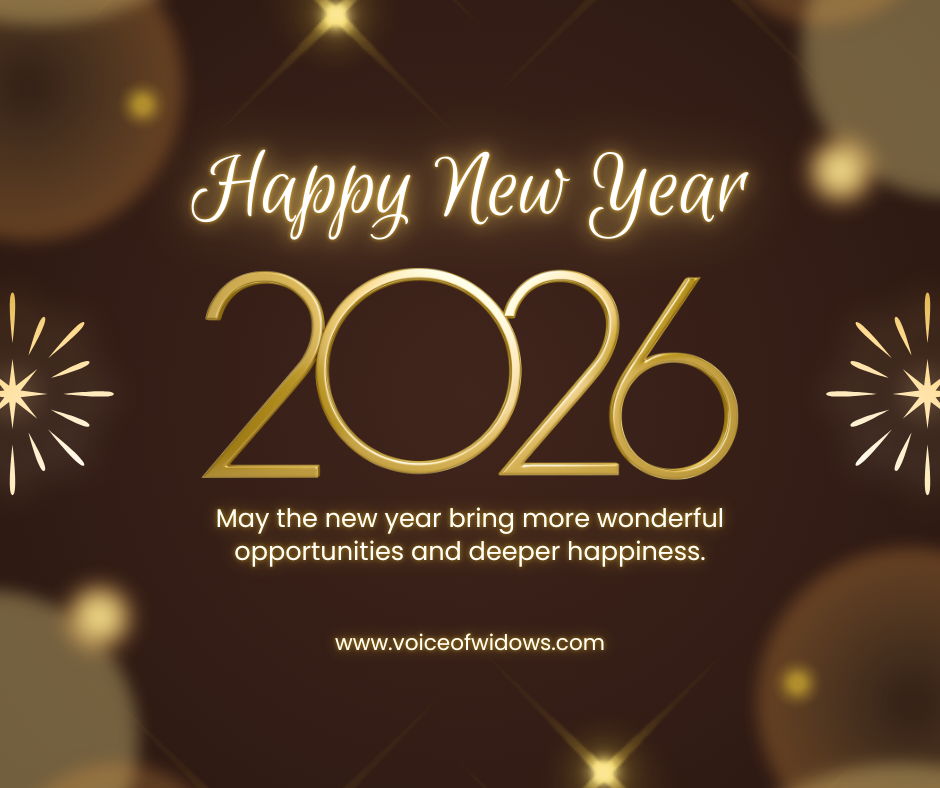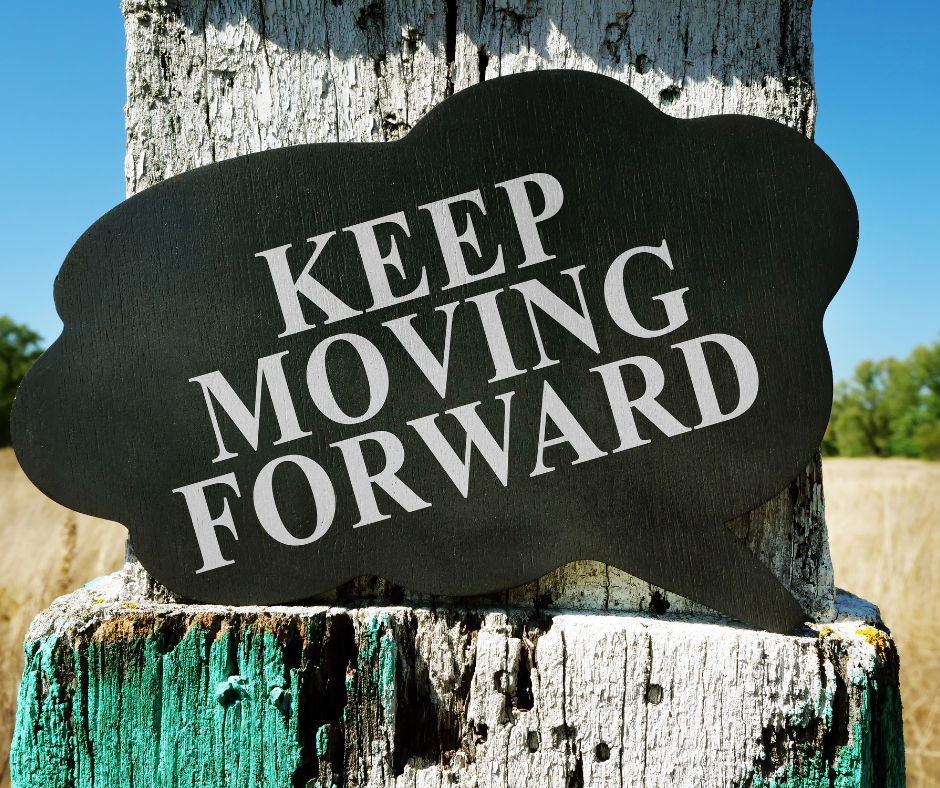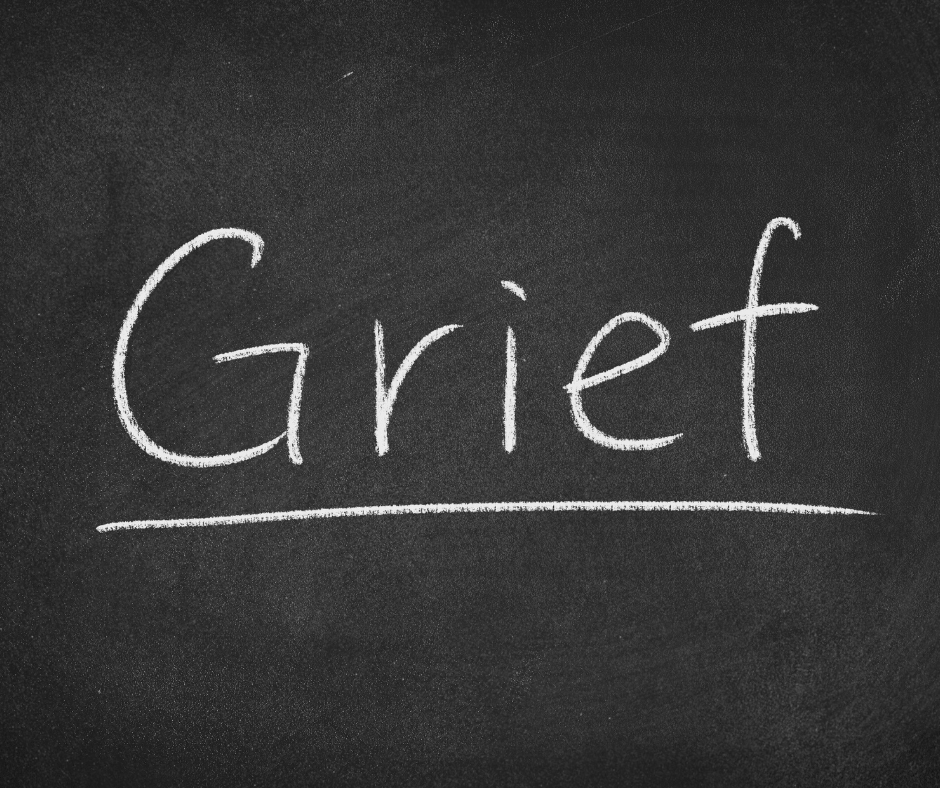The dawn of a new year is more than just turning a calendar page—it’s a moment of rebirth, reflection, and renewal. As we step into 2026, we are given a powerful opportunity to reshape our lives, set bold goals, and embrace the unlimited potential that lies ahead. Every year carries lessons from the past and hope for the future, and 2026 is your chance to ignite your dreams and make this year unforgettable. The New Year is a wake-up call. It’s the time to evaluate where you’ve been, what you’ve achieved, and where you truly want to go. Are you ready to leave behind regrets and embrace possibilities? Now is the moment to set intentions with clarity, create actionable goals, and take real steps toward success. Don’t just wish for change—be the change. The difference between 2026 and any other year lies in your commitment to personal growth, career ambitions, and emotional fulfillment. This is also the perfect time to reconnect with loved ones, strengthen relationships, and spread joy. The energy of the New Year is infectious; use it to inspire yourself and those around you. Start by celebrating achievements, both big and small, and acknowledge the progress you’ve made. Every effort counts, and every step forward builds momentum for a brighter, more fulfilled life. Act now, think big, and dream without limits. Don’t wait for the “perfect moment” because 2026 is here, and time will not pause. Take that course, launch that business, mend that relationship, or explore that passion you’ve been postponing. Success belongs to those who act, not those who hesitate. Your actions today will shape the story of your year, and the memories you create will echo in the years to come. As we embrace 2026, let’s commit to mindfulness, gratitude, and courage. Let this year be the one where you take bold steps, face challenges with resilience, and live fully in every moment. Happiness is a choice, and with the right mindset, this year can be your most transformative yet. Make it a year of achievements, laughter, and unforgettable experiences. Remember, a Happy New Year 2026 isn’t just about celebration—it’s about action, growth, and embracing life with purpose. Seize the day, take bold steps, and make this year truly extraordinary.
Shattering the Silence: The Unspoken Stigma Against Widows And Why It Must End Now
There is a powerful truth many societies still refuse to face: when a woman loses her husband, she is often forced to lose her identity too. The world may speak of compassion, but too often widows are quietly pushed to the margins—judged, pitied, excluded, and blamed for a tragedy they never chose. This stigma is ancient, but it lives loudly in the present. And until we confront it, millions of women will continue to suffer in silence. Widowhood is not only loss. For many women, it becomes a lifetime sentence of isolation. They are labeled instead of understood. They are watched instead of supported. They are questioned instead of comforted. In some communities, widows are told to dim their light, limit their happiness, and live in the shadow of grief indefinitely—as if joy becomes forbidden once their marital status changes. This is not culture. This is injustice. Where Does This Stigma Come From? The stigma against widows is rooted in fear, control, and harmful tradition. In many parts of the world, a woman’s worth has long been tied to marriage. When her husband dies, society treats her as incomplete, unsafe, or even unlucky. Some widows are denied inheritance. Some are stripped of dignity and choice. Some are silently punished for simply surviving. Widowhood should never equal guilt. Yet many women are made to feel responsible for what happened. And the tragedy deepens when children are involved. A grieving mother is expected to be strong, stable, and silent—all at the same time. But who supports her? The Emotional Cost No One Sees Widows experience a double grief: the loss of their partner and the loss of their place in society. Friends disappear. Invitations stop. People whisper. Judgment replaces compassion. And slowly, confidence fades. Imagine walking through life with your identity constantly questioned. Imagine being told you should “know your limits.” Imagine being treated as fragile, yet expected never to fall apart. This is the reality for too many widows. We Must Change This Now Widows do not need pity. They need power, dignity, and opportunity. They deserve: Respect. Inclusion. Financial independence. Emotional safety. Community support. Freedom to rebuild. Every widow is still a woman with dreams, skills, passion, and purpose. Her story did not end. It transformed. And we, as a society, must transform with it. It Starts With Us Speak up when you see discrimination. Include widows in conversations, celebrations, and decisions. Empower them with education, employment, and legal protection. Treat widowhood as a life transition — not a life sentence. When we uplift widows, we uplift families. When we restore their dignity, we restore humanity. Changing mindset is not optional. It is urgent. To Every Widow Reading This You are not defined by loss. You are not a burden. You are not invisible. Your strength is real. Your story matters. Your future is still bright. And you deserve a world that stands beside you — not against you. The Movement Begins With Awareness And Action Let this be the beginning of a louder conversation. A conversation that challenges stereotypes. A conversation that protects dignity. A conversation that finally breaks the silence. Because the stigma against widows should never have existed — and together, we can end it.
The Powerful Benefits Of Being Ambitious And Why Your Life Depends On It
Ambition is not a personality trait. It is a decision. A deep inner agreement with yourself that your life will not be small, silent, or settled for less than what you are capable of becoming. Ambition is the fire that separates those who wait from those who build, those who dream from those who execute, and those who survive from those who lead. In a world where comfort is marketed as success and mediocrity is normalized, being ambitious is often misunderstood. But the truth is simple and urgent. Without ambition, growth stops. Progress slows. Potential dies quietly. If you want your life, career, business, or legacy to matter, ambition is not optional. It is essential. This is not motivation for a moment. This is a wake-up call. Ambition Gives Direction to Your Life Without ambition, life becomes reactive. You respond to situations instead of designing outcomes. Ambition gives your life a clear direction. It forces you to ask important questions. Where am I going. Who am I becoming. What am I building that will outlive me. Ambitious people do not wake up randomly. They wake up with intention. They make choices aligned with long-term goals instead of short-term comfort. Direction creates discipline. Discipline creates results. When ambition is missing, confusion takes over. When ambition is present, clarity follows. Ambition Unlocks Hidden Potential Most people live far below their actual capabilities. Not because they lack talent, intelligence, or resources, but because they lack ambition. Ambition pulls hidden strength out of you. It forces you to stretch beyond fear, beyond excuses, beyond self-doubt. You do not discover your limits by staying comfortable. You discover them by chasing something bigger than who you are today. Ambition demands growth. Growth demands effort. Effort transforms potential into performance. Ambition Builds Mental Strength Ambition trains your mind to endure pressure, rejection, failure, and uncertainty. When you are ambitious, quitting is no longer an option. You learn how to adapt, recalibrate, and move forward even when things fall apart. This mental resilience becomes your greatest asset. It allows you to stay focused when others panic. It allows you to rise when others retreat. It allows you to lead when others follow. Ambition does not make life easier. It makes you stronger. Ambition Creates Financial Independence Let us be honest. Financial struggle is not romantic. It is stressful, limiting, and exhausting. Ambition fuels the desire to build skills, create opportunities, and pursue income growth beyond survival. Ambitious individuals invest in learning, take calculated risks, and build multiple streams of value. They do not wait for permission to earn more. They position themselves for it. Money alone is not success, but lack of ambition almost guarantees financial limitation. Ambition Separates Leaders from Followers Leaders are not born. They are driven. Ambition pushes people to take responsibility instead of blaming circumstances. It pushes them to solve problems instead of complaining about them. When ambition meets purpose, leadership emerges. Not loud leadership. Real leadership. The kind that inspires action, trust, and transformation. Every impactful movement, company, and vision in history was built by ambitious individuals who refused to stay silent or small. Ambition Keeps You Relevant in a Fast-Changing World The world is evolving faster than ever. Skills expire. Industries change. Technology replaces routine work. Those without ambition fall behind quickly. Ambitious people continuously upgrade themselves. They learn. They adapt. They stay curious and competitive. They do not rely on past achievements to secure future relevance. Ambition is the engine of lifelong learning. Ambition Turns Dreams into Deadlines Dreams without ambition remain fantasies. Ambition gives deadlines to dreams. It creates urgency. It refuses procrastination. It replaces someday with now. Ambitious people understand time is non-refundable. They act before motivation feels perfect. They move even when confidence is incomplete. Ambition respects time. That is why it wins. Ambition Inspires Others Without Permission One ambitious individual can change the energy of an entire environment. When people see someone chasing growth relentlessly, it challenges their excuses. It raises standards. It sparks belief. Ambition is contagious. It gives silent permission to others to dream bigger and act bolder. You do not need to announce ambition. Results announce it for you. The Danger of Living Without Ambition The absence of ambition does not look dramatic. It looks like settling. Like postponing dreams. Like accepting less while convincing yourself it is enough. Years pass quietly. Regret grows silently. And one day, the realization hits hard. I could have done more. I should have tried. Ambition prevents regret. It ensures that even if you fail, you fail knowing you gave everything. Choose Ambition Before It Is Too Late Ambition is not arrogance. It is self-respect. It is the refusal to betray your potential. You do not need approval to be ambitious. You do not need perfect conditions. You need a decision. Decide that your life will expand. Decide that your work will matter. Decide that comfort will not control you. Because the cost of ambition is effort. But the cost of no ambition is a lifetime of what-ifs. The choice is urgent. The time is now.
The Future of Work: How AI Is Revolutionizing the Way We Work
In the past decade, the workplace has undergone seismic shifts. Technology has always been a driver of change, but Artificial Intelligence (AI) is redefining the very nature of work. From automation to data-driven decision-making, AI is no longer a futuristic concept; it is a present-day reality transforming careers, businesses, and industries globally. Whether you are a business leader, an employee, or an entrepreneur, understanding how AI is reshaping work is no longer optional—it is essential for survival and growth. AI in the Workplace: More Than Automation Many people still think of AI as just robots replacing human jobs. While automation is a part of it, AI goes far beyond simple task execution. It enhances human intelligence, improves efficiency, and empowers decision-making. Smart Data Analysis: AI algorithms can analyze massive datasets within seconds, providing insights that would take humans weeks or months to uncover. Businesses can now make faster, more informed decisions, reducing risk and increasing profitability. Personalized Workflows: AI-driven tools can customize workflows for individual employees, increasing productivity and minimizing burnout. Imagine a system that learns how you work best and optimizes your day automatically. Predictive Insights: From forecasting market trends to anticipating customer needs, AI allows businesses to act proactively rather than reactively. This predictive power can be the difference between leading the market or falling behind. Emotional Intelligence Meets AI The fear that AI will replace humans entirely is understandable, but the reality is different. AI augments human capabilities, allowing people to focus on strategic, creative, and emotional aspects of work—areas where humans excel. Customer Experience: AI chatbots handle routine queries, freeing human teams to tackle complex problems and provide a personalized touch. Employee Engagement: AI tools can monitor work patterns, detect stress levels, and provide actionable recommendations to boost well-being and productivity. Collaboration: AI platforms enable seamless collaboration across global teams, breaking down communication barriers and making remote work more effective than ever. The synergy between human creativity and AI precision is where the future of work truly lies. Urgent Action for Businesses and Professionals Ignoring AI is no longer an option. The question is not if AI will impact your work, but how prepared you are to adapt. For Businesses: Integrate AI tools to streamline operations, enhance decision-making, and improve customer satisfaction. Companies that adopt AI early gain a competitive edge. For Professionals: Upskill and reskill. Learn AI literacy, data analytics, and machine learning basics. The professionals who thrive in the AI era will be those who collaborate with AI, not compete against it. For Entrepreneurs: Identify AI-driven opportunities to innovate. Whether it’s launching smarter products or using AI to understand customer behavior, early adoption can set you apart. The window to act is now. Businesses and individuals that hesitate risk falling behind as AI adoption accelerates across industries. The Global Impact of AI on Work AI is not just transforming individual businesses; it is reshaping entire economies. According to research, AI could contribute up to $15 trillion to the global economy by 2030. Countries and organizations investing in AI are seeing faster growth, higher efficiency, and improved innovation. But with opportunity comes responsibility. Ethical use of AI, ensuring data privacy, and mitigating bias are critical considerations. AI is a tool, and how we wield it determines whether it empowers humanity or disrupts it negatively. Conclusion: Embrace AI or Be Left Behind The future of work is intelligent, efficient, and human-centric. AI is not a replacement for human potential—it is a powerful partner that can unlock new levels of productivity, creativity, and opportunity. Take action today: learn AI tools, adopt AI-driven strategies in your business, and embrace continuous learning. The world is changing fast, and those who wait too long will be left behind. AI is not coming—it is already here. The question is, will you lead the change or watch from the sidelines?
Breaking Free: How Widows Can Overcome Social Stigma and Reclaim Their Lives
Breaking Free: How Widows Can Overcome Social Stigma and Reclaim Their Lives Widowhood is often portrayed as a life sentence of grief, isolation, and judgment. Society may impose silent rules on how a widow should behave, dress, or even think. These unspoken expectations create barriers, stigmas, and a sense of being “less than” in the eyes of others. But here’s the truth: your life does not end with loss—your journey is just beginning. The emotional weight of losing a spouse is immense. It comes with grief, anxiety, loneliness, and societal scrutiny. Many widows internalize these pressures, believing they must shrink themselves to fit society’s idea of “acceptable behavior.” But staying silent or passive only prolongs suffering. It’s time to act. It’s time to reclaim your voice, your identity, and your life. Understand the Stigma and Why It Exists Social stigma against widows often stems from outdated cultural beliefs: Blame and judgment: Some communities unfairly assign guilt or responsibility to the widow. Isolation: Widows are often excluded from social events or community activities. Economic disadvantage: Loss of a spouse can also mean a loss of financial security, increasing dependency and vulnerability. Recognizing these barriers is the first step toward breaking them. Once you understand the stigma, you gain power over it, rather than letting it control your life. Actionable Steps to Overcome Stigma 1. Rebuild Your Emotional Strength Start with self-compassion. Grief is natural, and healing takes time. Journaling your feelings, attending therapy, or joining support groups can help you process emotions and build resilience. 2. Educate Yourself and Others Knowledge is power. Learn about your rights, legal protections, and community resources. Educate those around you—family, friends, or colleagues—about what support a widow truly needs. Awareness reduces judgment. 3. Develop Financial Independence Economic security is a cornerstone of confidence. Explore opportunities for employment, entrepreneurship, or skill development. Financial independence is not just about money; it’s a declaration of self-worth. 4. Redefine Your Identity Widowhood is a part of your story, not the entirety of it. Engage in hobbies, pursue passions, and reconnect with your dreams. Your life can be vibrant, fulfilling, and meaningful—beyond societal labels. 5. Find Your Support Network Community is crucial. Surround yourself with people who respect and uplift you. Widows’ associations, online groups, and mentoring programs can provide encouragement and shared experiences. 6. Challenge Social Norms Speak out against discriminatory practices. Every small action counts—from asserting your choices to mentoring other widows. By challenging stigma publicly, you create a ripple effect that empowers others too. Urgency: Why Acting Now Matters The longer the stigma persists unchallenged, the more it erodes confidence and well-being. Every day spent in silence allows outdated beliefs to gain ground. Taking decisive action today can transform grief into growth, isolation into community, and stigma into empowerment. Inspirational Perspective Remember, your journey is not about fitting into society’s mold—it’s about reshaping it. Every step toward self-love, independence, and visibility is a victory. You are not defined by loss but by your courage to rise, speak, and reclaim your life. Call to Action Do not wait for society to accept you. Accept yourself first. Start today. Join a support network, take a course, explore your passions, or share your story. Your strength can inspire change not just in your life, but in the lives of countless other widows silently battling stigma.
Healing the Heart: How Self-Compassion Empowers Widows to Overcome Rejection and Reclaim Their Lives
Introduction: The Silent Struggle of Widows Losing a life partner is one of the most profound emotional challenges anyone can face. For many widows, the grief is compounded by social pressures, judgment, and even rejection—from family, society, or potential relationships. This emotional weight can feel unbearable, leaving women questioning their self-worth. But there is a powerful tool that widows often overlook: self-compassion. Self-compassion is more than self-kindness—it is a deliberate practice of treating yourself with care, understanding, and patience during moments of pain or failure. For widows, cultivating self-compassion can transform rejection into growth, loneliness into resilience, and grief into a path toward empowerment. 1. Understanding Rejection and Its Emotional Impact Rejection is not only painful; it can shake the foundation of identity, especially for widows who have already experienced profound loss. Feeling rejected may trigger: Self-doubt: questioning one’s value and worthiness Isolation: withdrawing from social interactions to avoid judgment Emotional stagnation: difficulty moving forward due to persistent sadness or guilt Without intentional coping strategies, these feelings can spiral into depression or prolonged grief. Recognizing the emotional toll is the first step in reclaiming personal power. 2. The Role of Self-Compassion in Healing Self-compassion allows widows to counteract the harsh self-criticism that often accompanies rejection. According to research by Dr. Kristin Neff, self-compassion consists of three key components: Self-kindness: Treating yourself as you would a close friend in times of pain Common humanity: Recognizing that suffering is a shared human experience Mindfulness: Observing emotions without judgment or over-identification By practicing self-compassion, widows can: Reduce the intensity of negative emotions Build resilience against future rejection Foster emotional healing and self-acceptance 3. Actionable Steps to Cultivate Self-Compassion Widows can actively use self-compassion to navigate rejection with these practical steps: Step 1: Acknowledge Your PainAllow yourself to feel hurt without judgment. Journaling emotions or speaking with a trusted friend or counselor can help process these feelings. Step 2: Reframe Rejection as GrowthInstead of internalizing rejection as personal failure, see it as an opportunity to learn, grow, and redefine boundaries. Ask yourself: “What can this experience teach me about my needs and values?” Step 3: Practice Daily AffirmationsSpeak kind and nurturing words to yourself every day. Examples include: “I am worthy of love and respect.” “It is okay to take my time healing.” Step 4: Engage in Supportive CommunitiesJoining widow support groups, online forums, or workshops can provide a sense of belonging and validation, reinforcing the principle of common humanity. Step 5: Prioritize Self-CareSelf-compassion is reinforced through self-care: proper rest, nutrition, gentle exercise, mindfulness, and hobbies that bring joy and fulfillment. 4. Overcoming Social Stigma Through Empowerment Widows often face societal judgment or unsolicited advice, which can exacerbate feelings of rejection. Self-compassion provides the inner strength to: Resist harmful comparisons with others Set healthy boundaries with family or peers Build confidence in navigating new social or romantic relationships By nurturing self-love, widows not only manage rejection but also emerge more empowered, resilient, and emotionally independent. 5. The Long-Term Benefits of Self-Compassion for Widows Embracing self-compassion is not a quick fix—it is a lifelong practice that gradually transforms the way widows experience life after loss: Emotional resilience: Greater ability to handle rejection, criticism, or loneliness Increased self-esteem: Strengthened self-worth independent of external validation Healthier relationships: Choosing connections that honor and respect personal boundaries Personal growth: Turning grief and rejection into lessons of courage and empowerment Conclusion: Reclaim Your Life Through Self-Compassion Rejection is painful, but it does not define your worth. For widows, practicing self-compassion can be a life-changing approach to emotional healing and personal empowerment. By acknowledging your pain, embracing your humanity, and treating yourself with kindness, you can navigate rejection with grace and strength. Start today. Begin your journey toward self-compassion, and transform rejection into resilience, heartbreak into growth, and loneliness into self-empowerment. Your life, your worth, and your happiness are waiting.
Rising After the Fall: How to Reduce the Sting of Rejection and Keep Moving Forward with Power
Rejection can feel like a full-body blow. It interrupts your momentum, drains your confidence, and makes you question your worth. Yet, every successful person you admire has walked through the same fire. What separates those who rise from those who collapse is not luck but strategy, inner strength, and the courage to take the next step even when everything feels heavy. The truth is simple: Rejection is not a verdict. It is a redirection. And what you do right now determines whether this moment breaks you or builds you. Understanding the Sting Before You Heal It Rejection hurts because it attacks the deepest parts of your identity. You may feel inadequate, disappointed, frustrated, or even ashamed. These emotions are real, but they are not final.The pain doesn’t come from the event itself but from the meaning you attach to it. Instead of asking, Why wasn’t I enough?Shift the question to:What can I learn, refine, and return stronger with? This shift alone moves you from emotional reaction to empowered action. Rejection Is Data, Not Definition Every no contains insight.Every closed door teaches you something.Every setback reveals your next step. Your task is to decode rejection rather than internalize it. Ask yourself:What specifically can I improve?Where can I sharpen my skills?What needs to change—not in who I am, but in how I show up? This transforms rejection from a wound into a roadmap. Detach Your Worth from the Outcome One of the most powerful steps in reducing the sting is learning to separate your identity from the result. A failed relationship does not mean you are unlovable.A declined application does not mean you are incapable.A rejected proposal does not mean your ideas lack value. Your worth is not up for negotiation. Only your strategy is. When you anchor your identity internally—not in other people’s responses—you become unstoppable. Allow Yourself to Feel, Then Choose to Rise Suppressing emotions never heals them.Let yourself feel the disappointment, but don’t let it imprison you. Once the emotional wave passes, make a conscious decision:I will rise. I will adjust. I will take the next step forward. Healing begins when you accept the pain but refuse to stay in it. Turn Rejection Into Momentum Rejection becomes powerful when you use it to fuel your next move.Here’s how: 1. Reflect honestlyIdentify what worked, what didn’t, and what you can refine. 2. Reorganize your approachShift your strategy, communication, or timing. 3. Rebuild your energyStrength returns when self-belief returns. 4. Recommit to your visionA single rejection does not dismantle your purpose. Every champion rises not because the path is smooth, but because the mission is too important to abandon. Surround Yourself With People Who Elevate You Isolation amplifies pain.Connection reduces it. Seek mentors, friends, communities, or groups that reinforce your growth.Share your thoughts with people who reflect courage back to you.This doesn’t just strengthen your emotions—it sharpens your perspective. Your Next Chapter Is Waiting for You Rejection isn’t the end.It’s the moment before everything real begins. There are opportunities you haven’t seen yet.People who will value what others overlooked.Paths waiting for your courage.Doors that will open only because one door closed. You are not behind.You are not defeated.You are being prepared. Take the next step boldly.Your story isn’t stopping here.It is just starting to rise.
Rebuilding the Unbreakable: Mental Strength Strategies Every Widow Deserves to Know
Rebuilding after loss is not a choice; it is a journey that every widow is forced to walk.And while the world moves forward as if nothing happened, you carry a weight that only someone who has lived through it can understand. The silence feels different. The nights feel longer. And the future feels unfamiliar. Yet within that darkness, there is something powerful you must never underestimate: your ability to rise again. This article is not just a set of tips. It is a call to action. A reminder that you are still here, still breathing, still capable of becoming everything life needs you to be. The Journey of a Widow Is Not Survival. It Is Reinvention. People may expect you to simply “move on,” but healing is not a straight road. It is a rebuilding of identity, purpose, and strength. Mental strength is not about ignoring pain; it is about learning how to grow through it. Here are transformative strategies to help you reshape your life from the inside out. 1. Claim Your Right to Feel Everything You don’t have to pretend to be strong every day. You don’t have to hide your tears. Mental strength begins with truth.What you feel is not weakness; it is evidence that you loved deeply. Give yourself space to grieve, to remember, to breathe.Because emotional honesty is the first pillar of resilience. 2. Build a Daily Routine That Protects Your Mind Your mind is your foundation now.Create a routine that supports clarity, calmness, and emotional stability. Focus on: Waking up with intention Practicing slow mornings Walking, journaling, breathing Eating with awareness Sleeping with discipline Every small habit becomes a brick in your rebuilding.Your new life is built through consistency, not intensity. 3. Connect With People Who Pull You Forward You don’t need a crowd; you need a circle.People who understand.People who listen.People who don’t pressure you to be the old version of yourself. Support groups, mentors, friends, community spaces—these connections expand your emotional capacity and reduce the heaviness you carry alone. Mental strength grows when you know you are not fighting alone. 4. Learn How to Calm Your Inner Dialogue The mind of a widow is overloaded—with memories, fears, future worries, and conversations that no longer have replies. Mental strength comes when you learn how to silence the noise. Practice grounding techniques: Slow breathing Repeating anchoring phrases Mind-clearing walks Writing out the thoughts that drain you You cannot control the storm outside, but you can calm the one inside. 5. Redirect Your Identity to Your Future, Not Your Loss You are a widow, but you are also more.Your identity is not defined by what you lost, but by what you choose next. Align yourself with a new purpose:A new dream.A new mission.A new version of who you are becoming. Mental strength grows when you shift from survival mode to growth mode. 6. Set Strong Emotional Boundaries You are allowed to say no.You are allowed to take time.You are allowed to protect your mental space. Not everyone deserves access to your healing process.Boundaries are not walls; they are shields that help you rebuild without interruption. 7. Invest in Your Personal Growth Healing is not only emotional, it is transformational. Learn a new skill.Start a new project.Read, study, expand.Take back control of your mental landscape. Growth is the ultimate form of strength.It tells your mind: I am not stopping here. 8. Believe That You Can Rise Higher Than Before Loss was not the end of your story.It was the beginning of a new chapter that demands courage, resilience, and self-trust. Your future is not over.Your purpose is not gone.Your capacity for joy is still alive, waiting for you to reclaim it. Mental strength is not something you find by chance.It is something you build by choosing, every day, not to give up on yourself. And today, you choose to rise.
The Power of Female Leadership: Women in Politics Changing the World By Irtaza Bilal, Founder of Go Daughters
In every era, humanity witnesses turning points powerful enough to redefine history. Today, that turning point is the unstoppable rise of women in political leadership. Their presence is not just symbolic. It is structural. It is strategic. It is changing societies, rewriting priorities, and restoring balance where power once felt one-sided. For centuries, politics has been defined by dominance, competition, and hierarchy. But women leaders are introducing something radically different: collaboration, empathy, accountability, and long-term vision. This shift is not subtle. It is seismic. And the world is finally starting to feel its impact. The world does not simply need more leaders. It needs better leaders. It needs leaders who can heal, who can unify, who can listen, who can build even in the middle of chaos. Women are proving, time and time again, that they are not only capable of leading but capable of leading in ways that genuinely transform lives. A Leadership Style That Redefines Power Women leaders consistently demonstrate strengths that modern governance desperately demands. They lead with empathy.They build systems rooted in community needs, not political games. Empathy in leadership means decisions that protect people, not positions. They lead with collaboration.They create bridges where others create walls. Their leadership thrives on dialogue, shared responsibility, and collective empowerment. They lead with resilience.Women rise despite barriers. They lead despite being questioned. They deliver results despite limited representation. Their strength does not come from authority but from lived experience, and that experience shapes wise, grounded decisions. Today’s political climate demands precisely this brand of leadership. The world is tired of conflict-driven decision making. Tired of loud voices with empty promises. Tired of leadership that prioritizes power over people. Women leaders offer an alternative that feels more human—and more effective. A Global Shift That Cannot Be Ignored From prime ministers to members of parliament, from grassroots activists to global negotiators, women are actively redefining political landscapes. Not silently. Not gradually. But powerfully. They are pushing forward policies that uplift families, strengthen education systems, expand healthcare access, advance human rights, and prioritize sustainable futures. When women lead: Conflict is approached with diplomacy rather than aggression. Economic policies prioritize equality and opportunity. Communities become central to national agendas. Transparency increases because accountability becomes non-negotiable. These are not predictions. These are documented realities. Around the world, countries with greater representation of women in politics see stronger development, reduced corruption, and more inclusive growth. The Urgent Need for More Women in Leadership This is not just a celebration of achievements. It is a call to action. Because the world—right now—needs more women stepping into political roles, shaping decisions, and influencing systems. We cannot wait for the “right time.” The right time is now.We cannot wait for permission. Leadership is not granted; it is claimed. Every young girl watching the rise of women in politics must know one thing clearly: this is your space too.Your ideas matter. Your voice matters. Your leadership can shape nations. Go Daughters: A Movement for Global Female Leadership As Founder of Go Daughters, Irtaza Bilal advocates not just for representation, but for empowerment that turns potential into power. Go Daughters champions global awareness, leadership education, mentorship, and the belief that every woman can rise to positions that influence, shape, and lead. Because the future will not just have women in leadership.The future will be stronger because women lead. A Future Built on Courage, Vision, and Change Women in politics are not changing the world slowly. They are changing it boldly. Their leadership is not a trend. It is a necessity. It is a global shift that demands recognition, support, and expansion. If we want nations that thrive, communities that feel heard, and systems that prioritize people over politics—then empowering female leadership is not optional. It is urgent. It is transformative. It is the path forward. The world is changing.Women are leading that change.And this is only the beginning.
The Hidden Traps of Grief: What Not to Do When Healing From Loss
Grieving is one of the most profound and personal experiences a human can face. The loss of a loved one, the end of a relationship, or even the shattering of a dream can leave a person feeling adrift, overwhelmed, and emotionally raw. Yet, while grief is universal, many of us unknowingly fall into patterns that slow our healing, deepen our pain, or even create long-term emotional scars. Understanding what not to do while grieving is just as critical as knowing how to care for yourself in the midst of sorrow. 1. Do Not Suppress Your EmotionsOne of the most common mistakes is bottling up feelings. Society often pressures us to “be strong” or “move on,” but grief is not a race. Suppressing sadness, anger, guilt, or confusion can lead to long-term emotional and even physical consequences. Cry, scream, write, or speak about your feelings — let them flow instead of burying them. 2. Avoid Isolating Yourself CompletelyIt might feel natural to retreat from the world, but isolation can intensify grief. Human connection is a powerful tool for healing. Surround yourself with understanding friends, family, or support groups. Even a brief conversation or shared silence with someone who cares can remind you that you are not alone in your pain. 3. Do Not Rush the ProcessGrief has no timeline. Forcing yourself to “get over it” quickly or comparing your journey to others’ can create unnecessary pressure. Each person’s process is unique. Give yourself permission to take the time you need to grieve, reflect, and slowly rebuild. 4. Avoid Self-Destructive BehaviorsTurning to alcohol, drugs, excessive work, or other harmful coping mechanisms might feel like temporary relief, but they only delay healing and can create additional problems. Instead, focus on nurturing activities: journaling, walking in nature, meditation, or practicing gratitude for small daily blessings. 5. Do Not Ignore Professional Help if NeededGrief can sometimes lead to depression, anxiety, or prolonged emotional distress. Seeking therapy or counseling is not a sign of weakness; it is an act of courage. A professional can provide guidance, coping strategies, and a safe space to process intense emotions. 6. Avoid Overlooking Your Physical HealthEmotional pain often manifests physically — disrupted sleep, fatigue, or weakened immunity. Maintaining a basic routine with proper nutrition, hydration, and gentle exercise can support your emotional healing. Your body and mind are interconnected; caring for one aids the other. Grief is undeniably painful, but it is also an opportunity for transformation. By recognizing what not to do while grieving, you can protect yourself from unnecessary suffering and create a pathway toward acceptance, resilience, and renewed purpose. Remember: healing does not mean forgetting; it means learning to live fully while honoring what you have lost.










